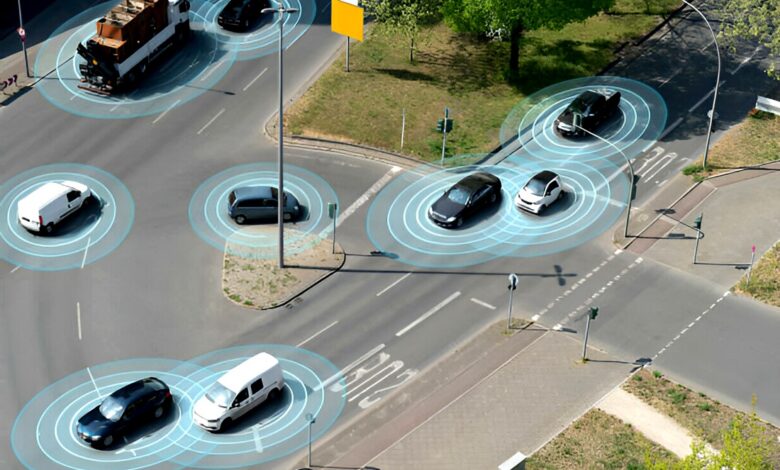The Role of AI in Smart Cities: How Spain is Leading the Way
Spain, known for its vibrant culture, history, and cutting-edge technology, is at the forefront of implementing AI in smart cities.

As the world embraces rapid urbanization, cities are evolving to accommodate the growing demands of their populations. Smart cities, a concept that integrates advanced technologies to enhance urban living, are becoming a focal point of innovation. At the core of this transformation lies Artificial Intelligence (AI), which is revolutionizing how cities function, making them more efficient, sustainable, and livable. Spain, known for its vibrant culture, history, and cutting-edge technology, is at the forefront of implementing AI in smart cities. In this article, we’ll explore the role of AI in smart cities and how Spain is leading the way.
Understanding Smart Cities and AI Integration
A smart city refers to an urban area that uses technology to improve its infrastructure, services, and the quality of life for its residents. These cities leverage a range of technologies such as IoT (Internet of Things), big data, and AI to optimize energy use, traffic management, waste disposal, and public services. The goal is to create a more sustainable, livable, and efficient environment.
AI plays a central role in the functioning of smart cities. It enables cities to analyze vast amounts of data, predict patterns, and make informed decisions in real time. Whether it’s managing traffic, optimizing energy consumption, or improving public safety, AI’s ability to process data and learn from it helps make cities more responsive to the needs of their inhabitants.
AI’s Impact on Smart Cities
AI contributes to smart cities in several ways. Below are some of the most important roles AI plays in transforming urban environments.
1. Traffic and Mobility Management
One of the most visible impacts of AI in smart cities is the optimization of traffic and mobility systems. AI-powered traffic management systems can analyze traffic data from various sensors and cameras to predict traffic patterns, detect congestion, and adjust traffic lights in real-time. This ensures smoother traffic flow, reduces congestion, and minimizes travel time for commuters.
Spain has been leading in this area, with cities like Barcelona utilizing AI-based solutions for managing traffic. The city has implemented a smart traffic system that uses AI algorithms to monitor road usage, predict traffic congestion, and suggest alternative routes. The system can also prioritize public transport, ensuring that buses and trams maintain punctuality and efficiency.
2. Smart Waste Management
Waste management is another area where AI is making a significant impact. With the growth of urban populations, managing waste efficiently has become a complex task. AI-powered waste management systems use sensors and machine learning to monitor waste levels in bins, optimize collection routes, and even predict the amount of waste generated on specific days.
In Spain, the city of Barcelona has implemented a smart waste management system that uses AI to monitor waste bins and optimize collection routes. The system is not only improving efficiency but also helping reduce carbon emissions by minimizing unnecessary waste collection trips.
3. Energy Efficiency and Sustainability
Sustainability is a key priority for smart cities, and AI plays a crucial role in making cities more energy-efficient. AI algorithms can analyze data from smart meters, weather forecasts, and building systems to optimize energy usage in real-time. For instance, AI can regulate heating, cooling, and lighting systems in buildings to reduce energy consumption and lower costs.
Madrid, Spain’s capital, is leading the way in this domain with its energy-efficient initiatives. The city uses AI to monitor and optimize energy usage across public buildings and infrastructure. By predicting energy demand and adjusting supply accordingly, AI helps reduce the city’s carbon footprint and improve overall energy efficiency.
4. Public Safety and Security
AI also enhances public safety and security in smart cities. AI-powered surveillance systems can analyze data from cameras, sensors, and social media to detect unusual activities or potential threats. Machine learning algorithms can identify patterns of criminal behavior, monitor public spaces, and even predict potential risks before they happen.
In cities like Barcelona, AI is being integrated into security systems to enhance surveillance and improve response times in emergencies. AI-powered cameras can identify suspicious behavior in real-time, alerting authorities to take action promptly. This proactive approach helps create safer urban environments and can significantly reduce crime rates.
5. Healthcare and Emergency Services
AI is revolutionizing healthcare in smart cities by improving access to healthcare services, enhancing diagnostics, and optimizing emergency response systems. AI can analyze medical data to assist doctors in diagnosing diseases more accurately, predict patient outcomes, and recommend personalized treatment plans.
Moreover, AI plays a role in optimizing emergency services. In Spain, AI is used to analyze emergency calls and route ambulances to the most appropriate healthcare facility, ensuring faster response times during emergencies. AI systems also predict healthcare demand, helping city planners ensure that resources are allocated where they are needed most.
6. Enhancing Citizen Engagement
A smart city is not only about technology but also about creating a better quality of life for its citizens. AI can help cities improve citizen engagement by providing platforms for residents to report issues, give feedback, and participate in decision-making processes. AI-powered chatbots, for example, can handle citizen inquiries and provide real-time responses, improving communication between the city’s administration and its residents.
Barcelona has implemented a citizen engagement platform that uses AI to gather feedback from citizens on various urban issues, such as waste management, traffic, and public services. This helps city officials make data-driven decisions that align with the needs and preferences of the population.
Spain’s Leadership in Smart City Development
Spain’s smart city initiatives have set a global benchmark for integrating AI into urban planning. The country has embraced the concept of smart cities, with several cities leading the charge in AI innovation. Below are some examples of Spain’s leadership in this field.
Barcelona: A Global Smart City Pioneer
Barcelona is widely recognized as one of the world’s most advanced smart cities. The city’s commitment to innovation and technology has transformed it into a global leader in urban intelligence. Barcelona has been a pioneer in integrating AI into various aspects of urban life, from traffic management to waste disposal.
The city’s smart traffic system, which uses AI algorithms to optimize traffic flow and reduce congestion, is one of the key success stories of AI in urban planning. Additionally, Barcelona’s commitment to sustainability is reflected in its energy-efficient initiatives, where AI helps optimize energy consumption in public buildings and infrastructure.
Madrid: A Hub for AI-Powered Energy Solutions
Madrid is another Spanish city that has embraced AI for the development of smart cities. One of the main focuses of Madrid’s smart city initiatives is energy efficiency. The city uses AI to monitor and optimize energy consumption across public buildings, street lighting, and public transportation systems.
Moreover, Madrid has been implementing AI-powered solutions for waste management, reducing waste collection costs and minimizing environmental impact. These initiatives are part of the city’s broader goal of becoming a more sustainable, energy-efficient urban environment.
Valencia: AI in Public Health and Safety
Valencia, known for its futuristic architecture and innovation, is also adopting AI to improve public health and safety. The city’s healthcare system uses AI to enhance patient care and predict health trends, ensuring that resources are allocated efficiently. Additionally, AI is helping to improve public safety through advanced surveillance and emergency response systems.
Valencia’s AI initiatives have been instrumental in creating a safer and healthier environment for its residents, making it a leader in Spain’s smart city movement.
Challenges and Future Prospects
While AI holds immense potential for transforming cities, its integration into urban environments is not without challenges. Data privacy concerns, the high cost of implementation, and the need for skilled professionals to manage AI systems are some of the hurdles that cities face.
However, Spain’s commitment to innovation, coupled with its robust technological infrastructure, positions it well to overcome these challenges. As AI continues to evolve, Spain is poised to remain a global leader in smart city development, with the potential to inspire other nations to follow suit.
Conclusion
AI is transforming the way cities operate, creating smarter, more sustainable, and more efficient urban environments. Spain’s leadership in AI-powered smart city initiatives has set a global example of how technology can enhance urban life. From traffic management to energy optimization and public safety, AI is making a significant impact on the daily lives of citizens in Spanish cities. As the world looks toward the future, Spain’s innovative approach to smart cities is sure to play a key role in shaping the cities of tomorrow.
By embracing AI in urban planning, Spain is not only improving the quality of life for its residents but also demonstrating the potential of technology to create more livable, sustainable cities for the world.











